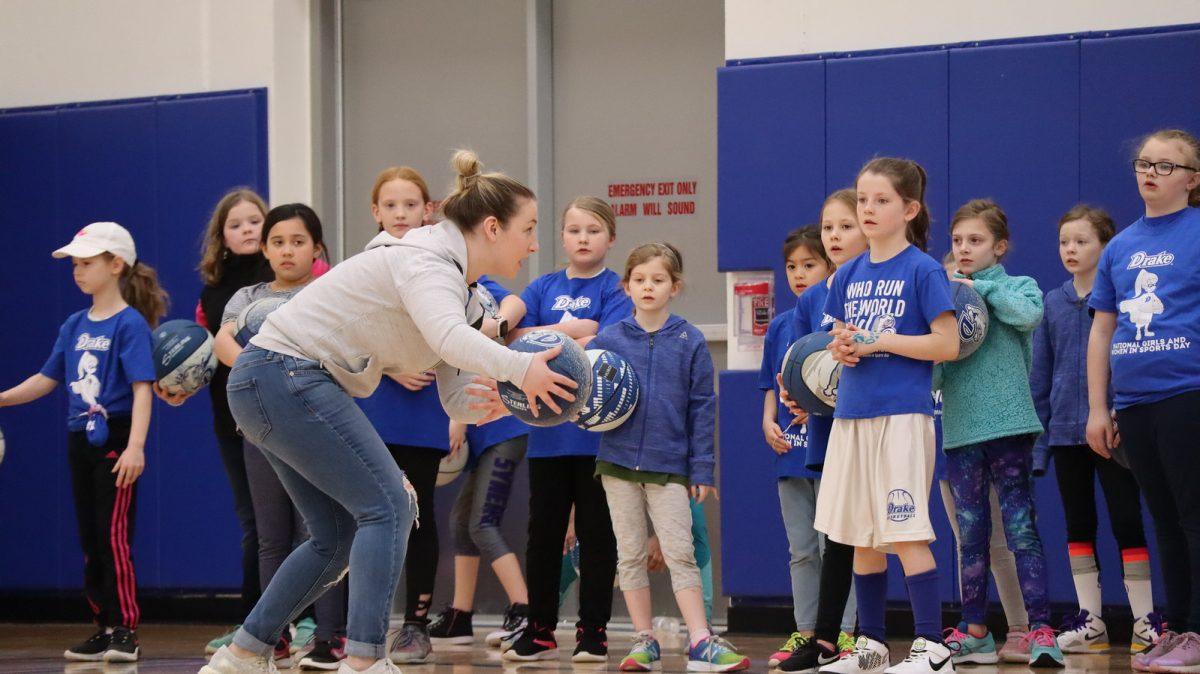by GRACIE GEIST
Student athlete study hall can cause stress on Drake University athletes due to the lack of a proper environment to accomplish schoolwork.
At Drake, the athletic department determines a number of study hall hours per week for every student athlete on campus. There are over 40 hours a week offered for athletes to complete their hours both during the day and nighttime. Each individual is assigned between two and ten hours of study hall based on their GPA. However, athletes report that the environment is unproductive and not ideal to work on assignments or study.
“People just like playing around, and there is too much talking,” first-year basketball player Issa Samake said.
Samake has taken this into consideration, as he likes a focused atmosphere to complete his work.
“I would have no quiet time if I did not go during the day,” Samake said.
During daytime hours there are fewer students resulting in a more studious atmosphere.
Drake Women’s Soccer Head Coach, Lindsey Horner, said the ratio of supervisors to students is low. Horner, along with many other academic support staff, are aware of athletes’ struggles with study hall and encourage their athletes to go to study hall during the day.
“I mean they don’t like it, and I know they don’t like it,” Horner said.
Horner also agreed the environment is reported to be noisy. Athletes can speak to their teammates and have side conversations because the environment is not monitored very heavily.
“Is it the easiest place for our players to study? Like, no. It’s a one size fits all approach,” Horner said.
Horner’s advice to her athletes is to get better grades. This way they can eliminate their study hall hours. However, study hall requirements are intended to be for more than social conversations.
“The majority of people are less productive during the evening compared to during the day,” assistant academic coordinator and study hall supervisor Jordan Prantner said. “It is supposed to be a productive time to accomplish your class work.”
The study hall structure is set up for students to be able to come in on their own time. According to Prantner, the nighttime study hall option is used more.
“It gets used a little more for a social aspect,” Prantner said. “It does also provide a good area and space that student athletes can be with their teammates or other people with similar situations to them. A place they can all go to get their work done.”
The Student Athlete Success Department believes that a structured environment will provide athletes a chance to organize their class work while staying on top of their practice schedule.
“I think it is super beneficial if they utilize their time,” assistant director of student athlete success service Dalton Moberly said.
Moberly reported the main purpose of student athlete study hall is to help athletes balance everything they have going on including 20-hour practice weeks and all their academic responsibilities.
“We admit it is not the perfect answer,” Moberly said. “It’s not something to be a detriment; it’s part of being a Drake athlete. This is our way to support the rigorous environment.”
Moberly agreed that most athletes do not use study hall time to be as productive as they could be. He discusses with students daily to help make accommodations for them.
“We try to make it as individualistic as possible,” Moberly said.
Moberly and other athletic staff, such as Prantner, work daily to help support athletes and provide an opportunity to succeed academically.
“We are constantly looking for ways to try and improve it,” Moberly said. “We just don’t want to turn study hall into babysitting.”






